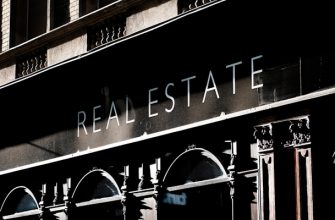- Revolutionizing Real Estate: How Tokenization is Promoting Sustainable Development
- Green Building Meets Blockchain: The Intersection of Technology and Eco-Friendly Practices
- From Concept to Reality: The Impact of Tokenized Properties on Sustainable Urban Development
- Investing in the Future: The Financial Benefits of Eco-Friendly Tokenized Properties
- Building a Greener Tomorrow: Innovations in Sustainable Property Development
- The Role of Community in Tokenized Eco-Friendly Real Estate Projects
Revolutionizing Real Estate: How Tokenization is Promoting Sustainable Development
Tokenization is transforming the real estate landscape, introducing innovative methods to promote sustainable development. By leveraging blockchain technology, tokenization allows for fractional ownership of properties, making eco-friendly investments more accessible to a broader audience. This approach not only democratizes real estate investment but also encourages environmentally responsible construction and management practices.
Through the tokenization of real estate, developers can attract eco-conscious investors who prioritize sustainability. This shift in focus contributes to a growing trend where properties are designed with energy efficiency, reduced carbon footprints, and sustainable materials. As a result, tokenized properties often feature:
- Renewable energy sources, such as solar panels and wind turbines.
- Green building materials, including recycled and locally sourced options.
- Water-efficient systems and smart technologies to minimize waste.
- Community spaces that promote biodiversity and enhance urban greenery.
The integration of tokenization in real estate development not only aligns with the principles of sustainability but also responds to increasing consumer demand for eco-friendly living spaces. By utilizing blockchain, developers can ensure transparency in their sustainability efforts, allowing investors to track the environmental impact of their investments.
Furthermore, tokenization facilitates collaboration among stakeholders, including investors, developers, and local communities. This cooperative approach fosters a shared commitment to sustainable practices, ensuring that eco-friendly innovations are at the forefront of future real estate projects. As tokenized real estate continues to gain traction, its role in promoting sustainable development becomes increasingly vital.
Green Building Meets Blockchain: The Intersection of Technology and Eco-Friendly Practices
The integration of blockchain technology into green building practices represents a groundbreaking shift towards eco-friendly innovations in property development. By leveraging the transparency and security of blockchain, developers can ensure that sustainability measures are verifiable and traceable, promoting trust among stakeholders. This intersection not only enhances the credibility of green buildings but also provides a platform for tokenized investments, allowing individuals to participate in eco-conscious projects.
- Transparency: Blockchain technology offers a decentralized ledger that records all transactions, ensuring that sustainable practices in construction and management are documented and accessible.
- Efficiency: Smart contracts can automate various processes in property development, reducing waste and improving the efficiency of eco-friendly initiatives.
- Tokenization: Through tokenization, investors can buy shares in green projects, making eco-friendly investments more accessible to a broader audience.
- Community Engagement: Blockchain can facilitate community involvement in sustainability efforts, allowing stakeholders to vote on eco-friendly initiatives and developments.
Moreover, the fusion of green building and blockchain fosters an ecosystem where environmentally responsible practices are not only encouraged but also financially viable. Tokenized property development, when combined with sustainable building techniques, leads to a new era of investments that prioritize ecological balance alongside profitability. As these technologies evolve, the potential for creating a greener future through innovative real estate ventures becomes increasingly tangible.
In conclusion, the collaboration of blockchain technology with eco-friendly practices in property development signifies a pivotal moment for the real estate industry. This synergy not only enhances the viability of sustainable projects but also empowers investors and communities to contribute to a more sustainable world. The future of real estate lies in the hands of those who embrace these eco-friendly innovations and harness the power of blockchain to drive meaningful change.
From Concept to Reality: The Impact of Tokenized Properties on Sustainable Urban Development
Tokenized properties represent a revolutionary approach to real estate, particularly in the context of sustainable urban development. By digitizing ownership through blockchain technology, tokenized properties facilitate greater accessibility and inclusivity in the housing market. This innovative model not only democratizes property investment but also encourages eco-friendly practices by allowing developers to focus on sustainable building methods.
One of the critical impacts of tokenized properties on urban development is the ability to fund green initiatives more efficiently. With fractional ownership, investors can contribute to projects that prioritize sustainability, such as solar energy installations, green roofs, and energy-efficient designs. These developments are often more attractive to environmentally conscious consumers, fostering a market that values sustainability.
- Enhanced Transparency: Tokenization provides a transparent ledger of transactions, ensuring that all stakeholders are aware of the sustainability measures integrated into the property.
- Increased Investment Opportunities: The fractional ownership model lowers the barrier to entry, allowing a wider range of investors to support eco-friendly projects.
- Community Engagement: Tokenized properties can facilitate community-driven initiatives, where local residents can invest in and influence sustainable urban development.
Furthermore, tokenized properties can accelerate the adoption of green technologies in urban landscapes. Developers are incentivized to leverage smart technologies that monitor energy consumption and optimize resource use. This shift towards intelligent building systems not only enhances efficiency but also reduces the overall carbon footprint of urban developments.
Ultimately, the intersection of tokenization and sustainability paves the way for a new era of urban development. As cities grow and evolve, the integration of eco-friendly innovations into tokenized properties will be crucial in addressing environmental challenges. The commitment to sustainable practices within tokenized real estate will lead to healthier communities and a more resilient urban ecosystem.
Investing in the Future: The Financial Benefits of Eco-Friendly Tokenized Properties
Investing in eco-friendly tokenized properties presents a unique opportunity for individuals and organizations looking to align their financial goals with sustainable practices. The rise of tokenization in real estate has transformed the way properties are bought, sold, and managed, allowing for greater accessibility and liquidity. As the demand for sustainable living grows, so does the potential for financial returns in this innovative sector.
- Enhanced Value: Eco-friendly properties often have higher market value due to their energy efficiency and lower operating costs. Tokenization enables fractional ownership, making these investments more accessible to a broader audience.
- Tax Incentives: Many governments offer tax benefits for investing in sustainable real estate. Tokenized properties can leverage these incentives, further enhancing their financial appeal.
- Stable Returns: Properties developed with sustainability in mind tend to attract long-term tenants who prioritize eco-friendly living, resulting in stable rental income. Tokenization provides the flexibility to invest in multiple properties, diversifying risk.
- Community Impact: Investing in eco-friendly developments contributes to community well-being and environmental preservation. This positive impact can enhance brand reputation and attract socially-conscious investors.
In conclusion, eco-friendly tokenized properties stand at the intersection of sustainability and profitability. As the world increasingly prioritizes green initiatives, the financial benefits of investing in these innovative developments will continue to grow. By participating in the tokenized real estate market, investors can not only achieve financial gains but also play a crucial role in fostering a sustainable future.
Building a Greener Tomorrow: Innovations in Sustainable Property Development
In the realm of property development, the shift towards sustainability is not merely a trend but a necessity for a thriving future. Innovations in eco-friendly practices are redefining how properties are built, managed, and utilized, ensuring a harmonious relationship between human habitation and the environment. Sustainable property development incorporates various technologies and methodologies aimed at reducing ecological footprints while enhancing living conditions.
- Green Building Materials: Utilizing sustainable materials such as bamboo, recycled steel, and reclaimed wood significantly lowers the environmental impact of construction projects.
- Energy-Efficient Designs: Implementing architectural designs that maximize natural light and ventilation can drastically reduce energy consumption in properties, promoting a greener lifestyle.
- Renewable Energy Sources: Integrating solar panels, wind turbines, and geothermal systems allows developments to harness clean energy, minimizing reliance on fossil fuels.
- Water Conservation Techniques: Employing rainwater harvesting systems and greywater recycling can drastically reduce water usage, making properties more sustainable and cost-effective.
- Smart Technology Integration: The use of smart home technologies can optimize energy use, monitor resource consumption, and enhance the overall efficiency of property management.
As the concept of tokenized property development emerges, it presents an opportunity to further promote sustainability. Tokenization allows for fractional ownership and investment in eco-friendly developments, making sustainable property more accessible to a broader audience. This innovative approach not only democratizes real estate investment but also incentivizes developers to prioritize sustainable practices, knowing that environmentally conscious properties appeal to socially responsible investors.
Moreover, the integration of blockchain technology in tokenized property development enhances transparency and accountability. By providing a clear record of sustainability metrics, stakeholders can ensure that developments adhere to eco-friendly standards, fostering trust among investors and residents alike. This innovative intersection of technology and sustainability paves the way for a greener tomorrow.
The Role of Community in Tokenized Eco-Friendly Real Estate Projects
Community engagement plays a pivotal role in the success of tokenized eco-friendly real estate projects. By fostering a sense of belonging and collaboration, these initiatives can address environmental concerns while promoting sustainability. Tokenization of properties allows for fractional ownership, which invites community participation and investment in eco-conscious developments.
- Collective Efforts: The community can come together to support sustainable practices, such as green building techniques and renewable energy sources, enhancing the overall appeal of the property.
- Shared Values: Eco-friendly real estate projects aligned with community values can attract like-minded individuals, creating a supportive environment for sustainable living.
- Local Involvement: Engaging the local population in decision-making processes ensures that the developments meet the needs of the residents while promoting environmental stewardship.
- Investment Opportunities: Tokenization democratizes real estate investments, allowing community members to invest in eco-friendly properties, thus promoting sustainable economic growth.
In addition to financial benefits, community-driven eco-friendly real estate projects can serve as educational platforms, raising awareness about sustainability. Workshops and events can be organized to inform residents about green practices and the importance of sustainability in property development.
Ultimately, the synergy between community and tokenized eco-friendly real estate projects can lead to innovative solutions that address environmental challenges while fostering economic growth and social cohesion. By prioritizing community involvement, these projects can not only thrive but also contribute significantly to a more sustainable future.










I never realized how important sustainability is in property development until I read this article. Tokenized real estate seems like a game-changer in the industry. Can you explain more about how blockchain technology is used in this process?
As someone who is passionate about eco-friendly initiatives, I am thrilled to see the role of sustainability being highlighted in tokenized property development. This article has inspired me to learn more about this innovative approach. Thank you for sharing!
I had no idea that tokenized real estate could have such a positive impact on sustainability. It’s fascinating to see how technology is being used to promote environmental responsibility in property development. I would love to hear more success stories in this space.